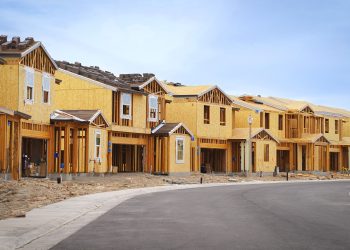What do you call a market where both buyers and sellers are stepping back?
Answer: worrisome.
According a Bright MLS survey of its broad mid-Atlantic region released this morning, people on either side of the home transaction are experiencing a “profound transformation,” as the nation’s second-largest MLS found that 75% of agents reported at least one buyer pausing their home search, with just under a third (32.8%) of those citing economic uncertainty, and nearly one-fifth (18.1%) blaming “general financial issues.”
Simultaneously, more than a third of agents saw sellers pull listings, as a market dynamic that seems like it should be favoring buyers is instead, favoring almost nobody.
“People are becoming increasingly concerned about their own economic situations,” Bright MLS Chief Economist Lisa Sturtevant tells RISMedia. “Sometimes those feelings people have can be a preview to a broader economic downturn.”
Sturtevant is careful to note that the survey—which was conducted between April and June of this year—is only capturing the market dynamics of one region. It also relies on agents reporting their interactions with buyers and sellers, so the data is less direct than consumer polls.
But as existing home sales fall under 4 million and mortgage rates settle in the high 6% range, Sturtevant adds that maybe an even more important takeaway from the survey is that concerns over rates and inventory are rapidly being replaced by fear-based motivations, with transactions increasingly taking place out of necessity—meaning people who are able to avoid buying or selling are dropping out of the market.
That includes significant shifts from factors that had previously been cited by both buyers and sellers as to why they were hesitant to transact.
“What caught my attention was—we talked so much about rate lock. Everybody is hinging their hopes on a housing market rebound from lower rates. But what we saw in this survey was mortgage rates—not wanting to give up their low rate and take on a higher rate—that reason became less important in the last few months to sellers,” she says.
Between this year and last year, the number of sellers who said they chose not to sell their home due to high mortgage rates shrank by more than half, from 34.5% to 15.6%. Simultaneously, the number of sellers who cited “other financial issues” as a reason for not selling jumped 71%—although that still made up a relatively small fraction of the total, at 8.9%.
For buyers, the jump was even more stark, with the total number who paused their search due to financial issues almost doubling from last year, from 9.2% to 18.1%.
Transactions out of necessity—for job or family reasons—also ticked up across the board, while people who bought second homes, or who were “tired of renting” fell.
That speaks to deeper issues with the market, Sturtevant says, as a new dynamic is driving—or more accurately, putting the brakes on—real estate activity—something that has shown up in national data as well.
“It’s no longer just about affordability–it’s about stability,” she said.
The near future
If lower rates don’t provide immediate relief, and with no sign of the kind of stability from federal policy that could help consumers feel more confident about transacting, Sturtevant says it is reasonable to see these results as something more than transitory.
But she adds that if there is no broader economic downturn, both buyers and sellers will likely “re-anchor” expectations, the same way they (eventually) did when mortgage rates more than doubled over the course of a year in 2021-22.
She points to the number of sellers who said they wouldn’t list based on not getting the kind of price they wanted—which made up almost one-fifth of those who pulled back over the summer.
“I do think (sellers) will adjust their expectations and I think they’ll be better able to, because one of the reasons people are stressed about not getting the price they want is they’re looking around…if they’re going to buy another home, they’re seeing that prices are still high,” she says.
As price growth starts to moderate, sellers will feel better about the mental barrier of “equity lock”—feeling like they should be getting more for their home—and will be more willing to trade up (or down).
Additionally, younger families who bought in 2019 or 2020, who for the most part have significant equity and are also at a life stage where they will be looking to move, and Sturtevant says this factor is already somewhat propping up the market, along with activity from older boomers and higher income folks, who are less affected by economic anxieties.
But if demand remains low, or if the economy slips further, the survey shows a tough outlook for real estate in the medium term. Sturtevant notes that builders pulled back broadly this year, with new home sales falling from post-pandemic highs, virtually guaranteeing that overall home sales will be lower this year than last year as buyers sit on the sidelines.
The recent Bright survey asked agents whether they expect more seller or buyer activity in the next three months, finding expectations for buyers falling by around 12% just this calendar year.
“I think there’s been a lot of talk that we’re shifting into a buyer’s market because people are just looking at inventory,” Sturtevant says. “The fact of the matter is, buyers are stressed right now. I wouldn’t call it a buyer’s market if you think about it in terms of a lot of people being enticed into the homebuying process.”












